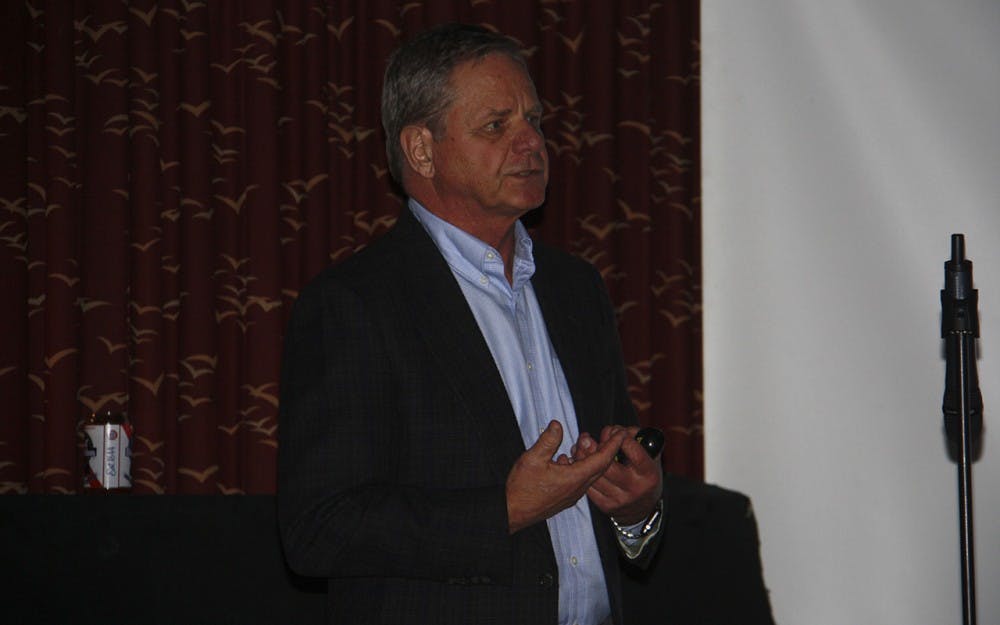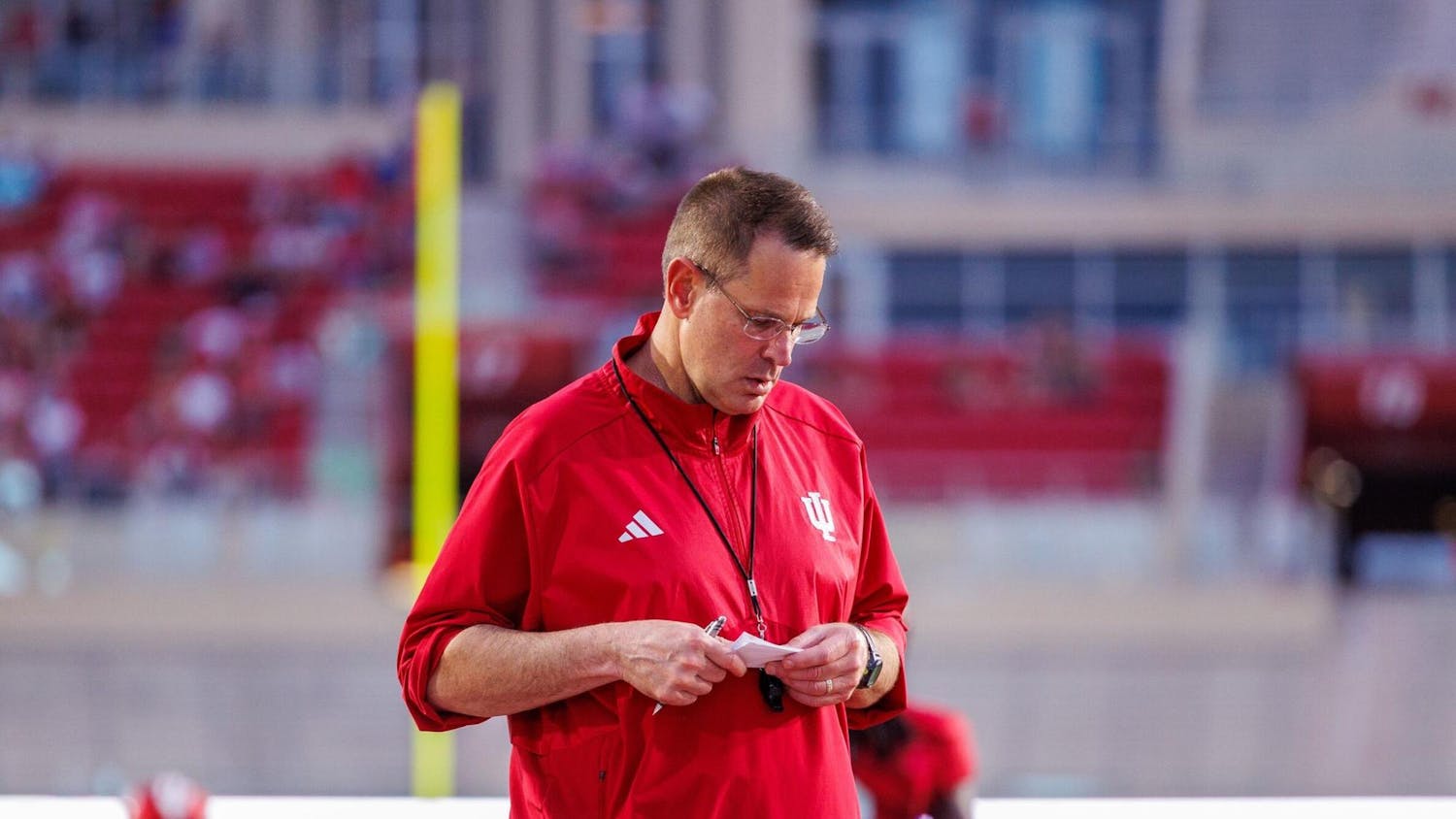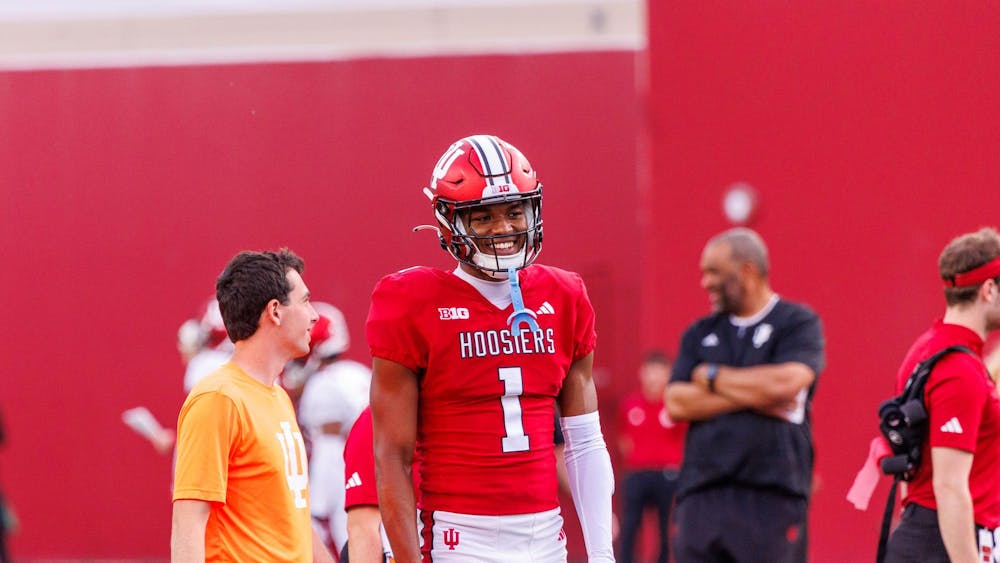IU political science chair Gerald Wright presented his research on polarization between political parties Wednesday at Bear’s Place’s Science Café. Science Café is a community event featuring talks by scientists, who discuss topics related to their research with the public.
Wright used data and graphs to illustrate the rise in political polarization in the United States in the past 50 years and his research focused on how political parties’ ideological differences relate to polarization across the country.
“The identity of politics has become pretty intense, but it’s not always been that way,” he said.
Wright said when he was growing up in the 1960s, the divide between the ideology of Democrats and Republicans was less pronounced than it is today.
“States have been moving in the direction of their existing ideological preferences,” Wright said. “Liberal states have become more Democratic, and conservative states have become more Republican.”
In his presentation, he discussed how the ideologies of the two parties have flipped over time. Democrats used to be more conservative, and Republicans used to be more liberal, but this has changed dramatically in the past 50 years, he said. The states have been heading in diverging directions since the Clinton years, Wright said.
He said his main focus is how polarization occurs on the state level and how certain states become dominated by one party. While most people tend to focus on gridlock in Washington, D.C., when they think of political polarization, Wright said it is important to look at how it affects states.
“You can’t talk about American politics today without talking about political polarization and the distance between the political parties,” he said. “Almost everyone focuses on this as a national phenomenon, but really, if you think about it, it’s a product of what’s going on in the states.”
He said the ideologies of Republican states tend to be more stable than Democratic states, and Republican states tend to be more homogeneous in their conservative ideology. This means more conservative states have less polarization than liberal states, he said.
Meanwhile, Democratic states where people are more liberal tend to be more polarized than Republican states, he said.
There are also now record highs of unified party control in states, Wright said.
“They are free to have an ideological heyday in terms of policy,” he said. “We are sorting into these more homogeneous camps.”
These major differences can be seen in how Democratic and Republican states often go in opposite directions in areas like LGBT issues, gun control, abortion, marijuana and immigration.
Wright said he was excited to bring his research in the social sciences to an event normally focused on scientific fields like chemistry, biology or physics. He said he usually only presents his research to others within the political science field, including talks at conferences and universities and discussions with students.
“It’s really useful to get questions from outside of one’s field from other smart people,” he said. “I think it’s interesting, too, as a scholar, to see the different things people in other disciplines are doing.”
Giovanni Ciampaglia, a researcher in network science, said he has attended Science Café events in the past. He said he enjoys learning about the various topics related to science.
He said he also likes meeting members of the Bloomington community who are not affiliated with the University but love science.
Jonathan Schlebach, an assistant professor in chemistry, organized the event. He said he recently took over the leadership of Science Café, and this is his first lineup.
He said he picks the speakers from the IU faculty, and he wanted to include the social sciences.
“I wanted to make sure I cover different types of sciences,” he said.






